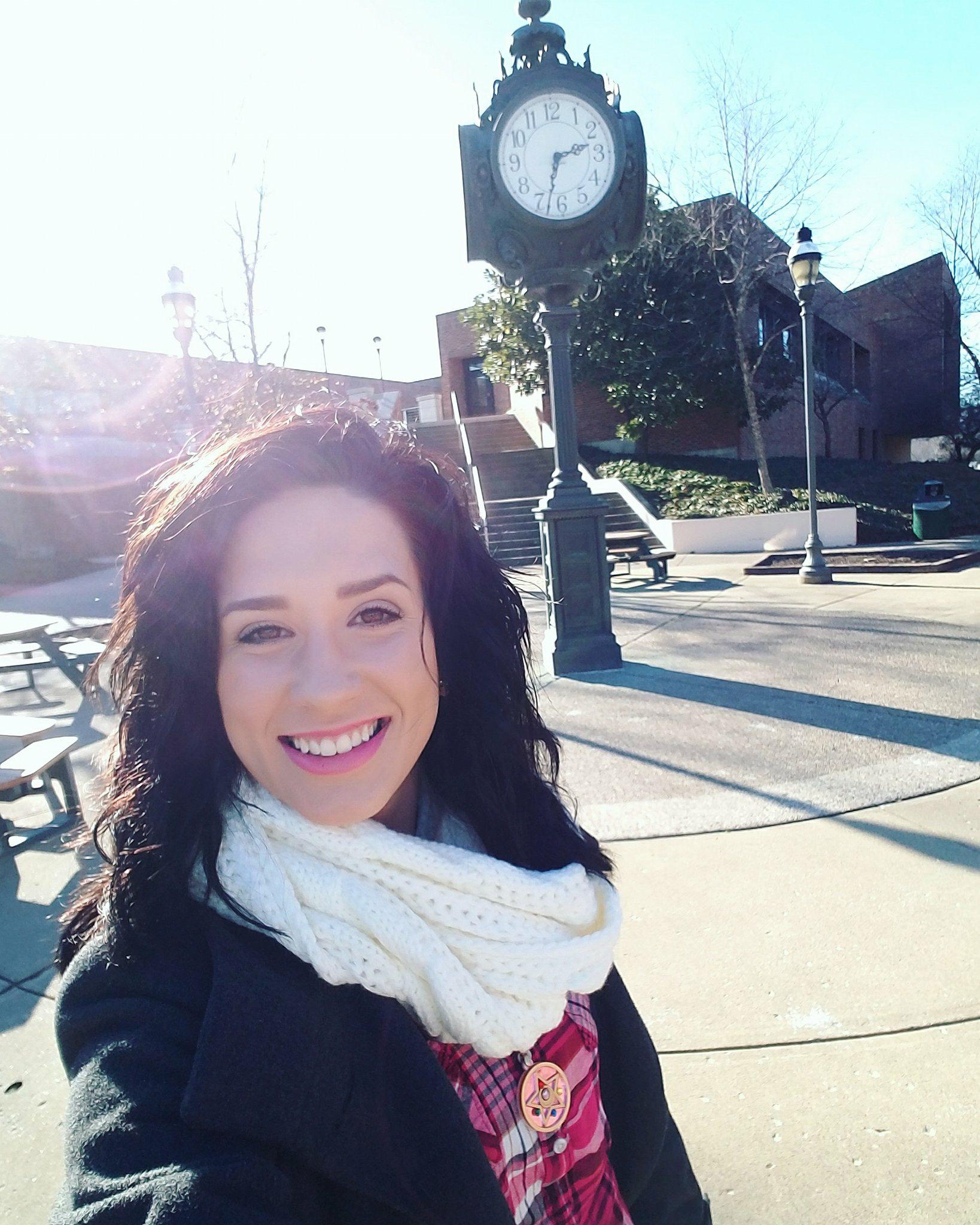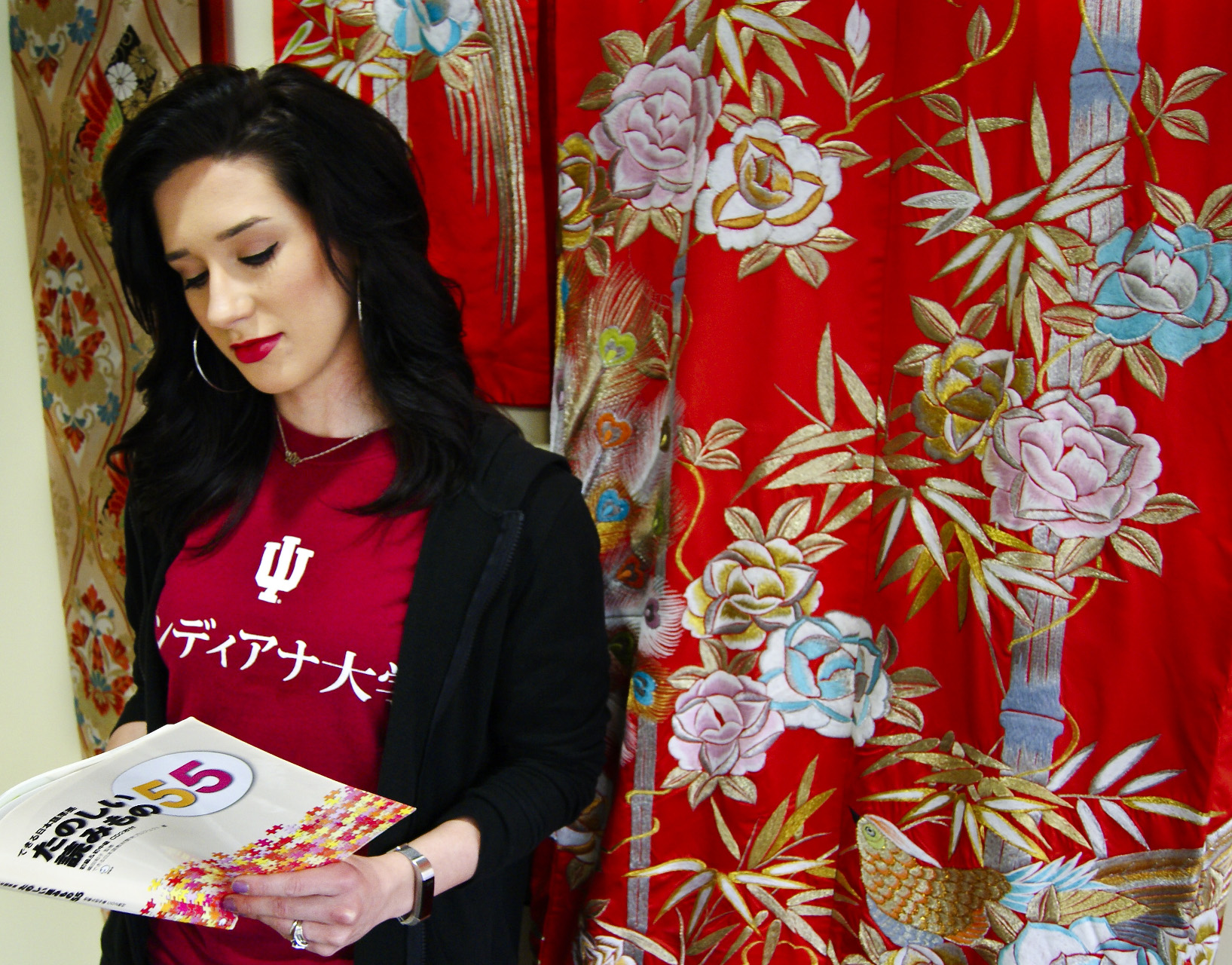How I Met Japanese Language Partners in a Small Town (and So Can You!)
When I was 4 years old, I discovered Sailor Moon.

To say I had an obsession was an understatement. Ever since, I've loved Japanese culture. The delicious food, the rich and crazy unique culture, the wacky shows, the cherry blossoms.
But more than anything, I fell head over heels in love with this beautiful language.
I learned little bits of the language my whole life. I tried Rosetta Stone. I took four years of Japanese in college, and prioritized every Japanese culture class I could take.
But even after all that, I was still failing to communicate in this language I loved.
I craved Japanese communication, but couldn't get over my fear!
Then, I met native speakers and started meeting for language exchanges. I didn't think I would be able to find many Japanese people in my area. I live in the Midwest — the Asian population where I live is less than 1%. But once I knew where to look, I found several Japanese language exchange partners.
Even After Studying Japanese at College, I Failed the Proficiency Test
Benny Lewis, the founder of Fluent in 3 Months, has a simple #1 rule: speak from day one. I was an Fi3M reader, so I knew this, but I wasn't applying it. Even in situations where I had the opportunity, I would get scared.
After four years of college, I took the Japanese Language Proficiency Test (JLPT) and failed. I did well on tests in college, but this didn’t translate across to this real-world test. I wasn't pushing myself to speak because I didn't have to. I spoke broken, toddler-like Japanese. In fact, having been around Japanese toddlers lately, I can say it was worse than that.
Taking Japanese in College Helped Me Learn Grammar, But Not What I Wanted to Say
I thought if I kept trying to memorize grammar, I'd eventually remember it when the time came to speak.
I couldn't have been more wrong.
I would become so nervous that I could never seem to think of the grammar pattern. I would stumble on conjugation, and how to work around a word I didn't know. I would resort to English because I knew my classmates and teacher could understand.
My Japanese classmates would fall back to English, too. I realize now it's because we learned topics from textbooks, rather than focusing on topics we cared about.
How Everything Changed: Japanese Saturday School

One interesting thing about Japan is that they go to school on Saturdays. So when families come here, they want their kids to continue to have a Japanese education. They enroll them in Japanese Saturday Schools.
This means that almost all the Japanese people in my area meet at the same place, at the same time every week.
The Japanese Saturday School happens to be at my alma mater and run by the Japanese families. But I had no idea it existed until my last semester of school. One of the women reached out to my teacher for help finding someone to tutor her in English, so I volunteered.
Every Saturday morning while her kids were at the school, we would meet. I felt comfortable with my new Japanese conversation partner. By making connections between English and Japanese, I was speaking and growing.
Now I Speak Japanese Several Days a Week
Once I got to know my new friend, she introduced me to another Japanese woman who's fluent in English. I became friends with her as well, and she introduced me to another family in need of tutoring.
Now, I meet for Japanese language exchanges several times a week. I even get practice reading and replying to them through social media and text.
Once I was no longer in a school setting, where I was graded on my ability to converse, I was able to get over my fear.
Japanese Skype friends and practice speaking online are still great options. But for me, having a face-to-face connection helped. Seeing that kindness in their body language was encouraging.
I'm Finally Making Progress (And This Time, I Passed the Test!)

I will admit I lucked out finding Japanese friends I connected with right away. Not every person you met who speaks your target language will click with you. But, finding them in person made a world of difference.
Because I started speaking, I was able to go back and take the JLPT again. And I passed! I knew almost every kanji and vocab on the test. I could almost make out everything in the listening section, my weakest area.
It's because now I practice speaking those words and hear them daily. I cannot stress this fact enough. Speak from day one works because you need to hear yourself speak the words and hear how they sound outside of your head. If you don't speak, then you won't make the connection from the written symbols to the spoken word.
I'm still on my Japanese language journey. But speaking and learning Japanese has given me newfound confidence. I'm finally living a dream I've wanted since I was 4 years old, and I can't wait to continue to grow. Now, I can learn grammar again and apply it to improve what I already say — instead of the other way around!
5 Steps To Find a Japanese Language Exchange Partner (No Matter Where You Live)
If I can find Japanese language exchange partners in a small Midwestern town, then you can find them too. The key is to find locations where many Japanese people meet (or any native speakers in your target language).
Step 1: Check Local Colleges and High Schools
See if your local schools have foreign exchange students, or classes in your target language. You may be surprised to find that your college hosts many Japanese students.

You can also connect with students learning your target language. While some students won't be motivated to speak without using English, others may share your passion. It won't be the same as speaking with a native. But, it will get you speaking with someone — and you’ll feel less embarrassed about your mistakes, because chances are they’ll be making mistakes too.
Step 2: Look for Local Communities Who Speak Japanese
To find local community groups that speak your target language, run a Google search, or just ask around.
Japanese families want to keep their language, culture, and education in their children's lives. So, you may have luck finding a local Japanese Saturday School in your area as well! Or there might be other programs they use too — even things like daycare or yoga classes.
The best place to start would be colleges or high schools, but a quick Google search can turn up results too. A word of caution though — Japanese people don't always use the same online services, like Facebook. So a search online that leads to a dead-end might not be accurate.
Besides the Saturday School, I found a local church with Japanese services as well. When I went, I got to meet Japanese families, bilingual spouses, and other Americans like me. The families even host Japanese culture events and yard sales at the church!
If your target language is taught at the school you found in Step 1, ask the teacher if he or she knows of local communities. The teacher could tell you if there is a popular meeting place for people of your target language, or a local service they often use. Or they could introduce you to a friend who speaks the language. Be open to putting yourself out there — it can be nerve-wrecking, but it's worth it!
If the teacher knows of someone, you could add them on social media first. Introduce yourself in Japanese! It will help you break the ice and come up with ideas to talk about before you meet.
Step 3: Say Hello, and Ask to Meet for Coffee
If you're given the chance to meet someone who speaks your target language, don't let it pass by! If you seem to click with someone, ask if they'd like to meet for coffee and chat in both languages.
Remember: don't make it all about you. If you want a conversation partner to stick with you , then you need to be a good exchange partner. Ask your partner what they want to talk about in advance, and plan to split the time. Study relevant words to that topic before you meet. And always ask if they have questions about English. When it's your turn, take advantage and don't fall back on English. Work around your word blocks, and don't get hung up on making mistakes!
Step 4: Remember, Your Language Partner Doesn’t Have to Be a Native Speaker (But It Helps If They Are)
If you're having a hard time meeting a native speaker, try reaching out to other language learners! Search Facebook for local groups, or even meetups. Any practice speaking is better than none at all. Work on your discipline to speak as much as possible in your target language. Since you both are learning, this may be more difficult than with a native speaker. But it's possible!
Use Google Translate or dictionaries if you can't seem to figure out how to say something. It's not foolproof, but it will keep you going. Write down what you struggled with, and then ask in language learning forums online for help.
Step 5: Still Stuggling to Find a Japanese Conversation Partner? Check out Preply!
Even if you can’t find a language exchange partner in your local community, you can always find a way to practice speaking Japanese online. I’d recommend it too as a great place to find someone to practice speaking with.
So there's no excuse not to speak! But if you're like me and need that body language to feed off of in person, then you may have to take some extra steps to warm up.
I like searching terms in Japanese on Instagram and then commenting on photos… in Japanese. I've had a few Japanese people correct me, but most reply kindly. Because I'm commenting on popular photos from people looking for social attention, I'm not as nervous. It feels more casual.
For apps and websites like Preply, make sure to look for people who are similar in level and interests. Try chatting in a direct message first and see if you connect. Then move on to making Japanese Skype friends, and talking virtually face-to-face!
Now, Go Find Your Japanese Conversation Partner!
I hope these tips of how I found my Japanese language partners will help you find partners, too. Don't be scared to reach out to new people and ask to meet for a language exchange. Take advantage of the opportunities that come your way. Japanese doesn't have to be hard — you just need to start speaking.
And if you need resources to improve your Japanese, check out Benny's Top Resources for Learning Japanese.




Social